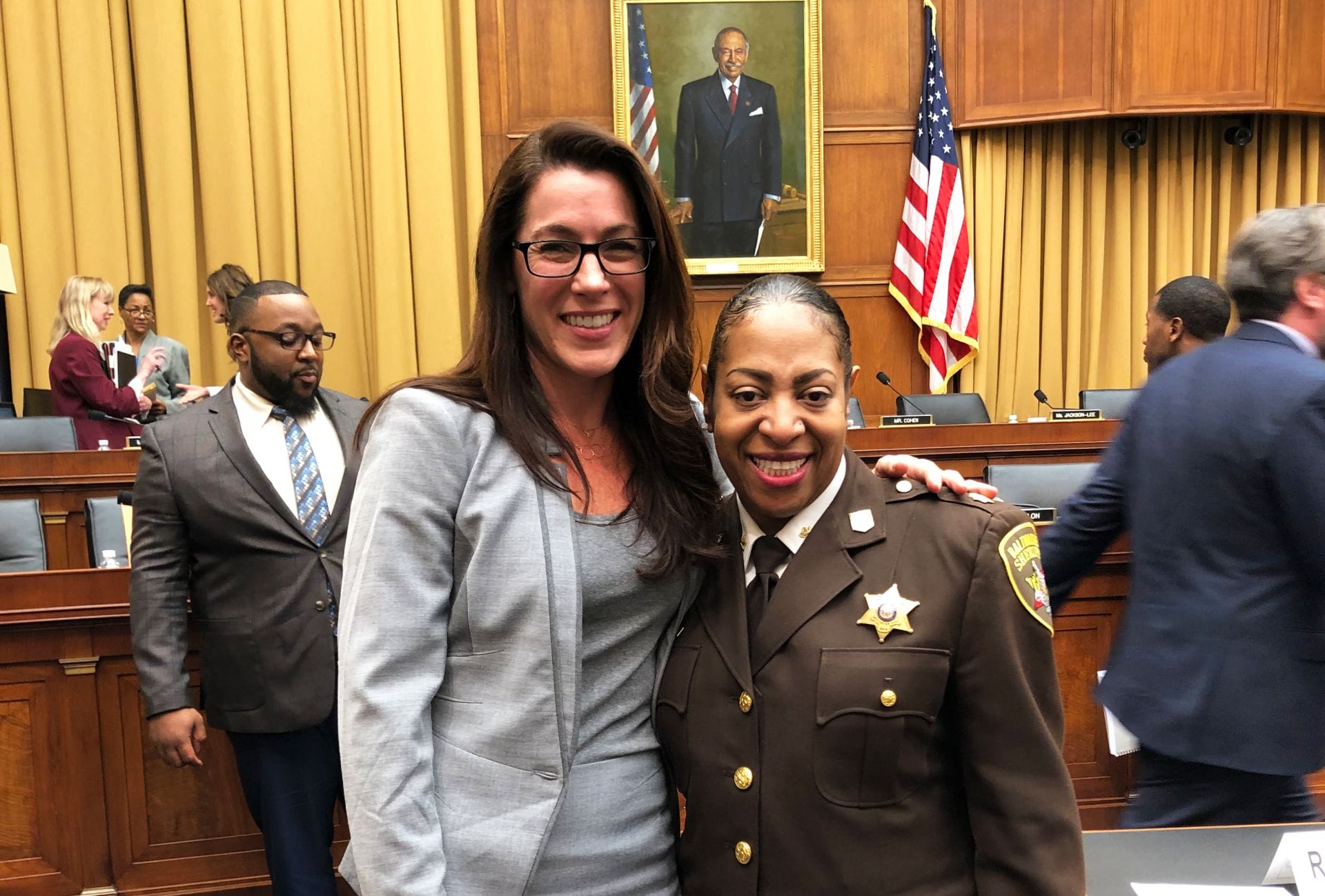
6 Must-See Moments from the Historic House Hearing on Gun Violence
Twelve years ago, I testified before the House Judiciary Committee on gun violence prevention, detailing how we could address a crisis killing Americans everyday.
As we all know, Congress has made little to no significant progress and more than 390,000 people have died from gun violence since.
On Wednesday, February 6, I spoke before members of Congress urging them to take action on commonsense legislation to gun violence—starting with universal background checks, a bipartisan bill introduced just weeks ago.
I was looking forward to engaging with a bipartisan group of lawmakers on solutions to America’s gun violence crisis. Unfortunately, few Republican members stayed in the room for more than a short period of time, and several didn’t even bother to show at all.
They missed out on compelling facts, solutions and guidance that law enforcement, researchers and experts laid out that day. The truth is we know how to save lives from gun violence—and it is essential that the House starts with passing the Bipartisan Background Checks Act of 2019.
It was a marathon of a day, but the spirit and determination of the gun violence survivors, advocates and experts sitting behind the witness table gave me hope that progress is on the horizon.
I was particularly inspired by the compelling stories and powerful calls to action delivered by both lawmakers and witnesses.
There were many of them, but here are just a few of the memorable moments you might’ve missed:
Rep. Val Demings sends a fierce message to Congress.
Representative Val Demings (FL-10) spent 27 years as a law enforcement officer, including four years as the Orlando Police Chief. As a police officer, she witnessed first-hand the devastating impact America’s weak gun laws had on the people in her community. At the hearing, Rep. Demings delivered a sharp message to her colleagues: do your job or get out.
Dr. Joseph Sakran calls for a public health approach, including research funding.
Dr. Sakran is the Director of Emergency General Surgery at The Johns Hopkins Hospital. He shared his personal stories as a gun violence survivor and trauma surgeon, from caring for patients with bullet wounds, to telling family members their loved ones did not make it. He called on Congress to take a public health approach to preventing gun violence, including appropriating adequate funding for research that can inform evidence-based policymaking.
Chief Art Acevedo stands in solidarity with students.
Houston Police Chief Art Acevedo represents the fourth largest city in America. He oversees more than 5,000 police officers—including the four officers shot on the job at the end of January—and more than 1,000 civilian personnel. At this hearing, he also spoke on behalf of the Major City Chiefs Police Association and the US Conference of Mayors. After highlighting how gun violence tears communities apart and makes policing more dangerous, he turned to the students in the room to stand in solidarity with their efforts.
Aalayah Eastmond speaks out for communities of color.
Aalayah Eastmond is a vocal advocate for commonsense gun safety legislation as the Executive Council Member of Team Enough. Nearly one year ago, Aalayah narrowly survived the mass shooting at Marjory Stoneman Douglas High School in Parkland, Florida. She recalled that awful day, and at the same time reminded lawmakers that communities of color also face gun violence nightmares of their own and need solutions to help.
Rep. Hakeem Jeffries reveals one witness’s NRA ties.
Joyce Lee Malcolm is the Patrick Henry Professor of Constitutional Law and the Second Amendment at George Mason University’s Antonin Scalia School of Law. While Professor Malcolm presented herself as an impartial academic, Democratic Caucus Chairman Rep. Hakeem Jeffries pointed out her policy positions are in lockstep with the NRA, which funds her position and has repeatedly granted the school hundreds of thousands of dollars for “Second Amendment study.” It’s worth noting that the law school’s namesake Antonin Scalia famously argued in the Heller decision that “Like most rights, the right secured by the Second Amendment is not unlimited…[It is]…not a right to keep and carry any weapon whatsoever in any manner whatsoever and for whatever purpose.”
Student Advocates, Survivors Turn Out en Masse.
Gun violence prevention advocates from March for Our Lives, Team Enough, Moms Demand Action, and many more organizations were out in full force at yesterday’s hearing. The line to get in the room ran all the way down the hall. There were so many people, they had to open up an overflow room. Americans are demanding action—and they showed up yesterday to ensure lawmakers deliver that action.
TELL CONGRESS YOU SUPPORT UNIVERSAL BACKGROUND CHECKS
Use our Call Congress tool to tell your representative that you support H.R.8, the Bipartisan Universal Background Checks Act of 2019. We’ll call your phone and patch you through.
CALL CONGRESS NOW